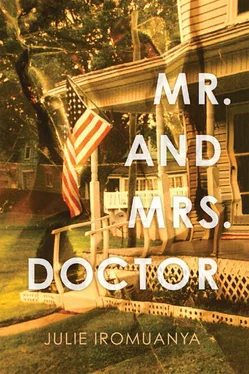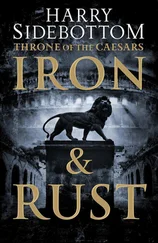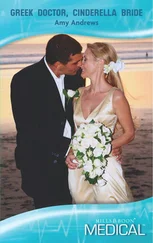When they arrived at the hospital, Cheryl gazed at him with somber eyes. “They did that to you too, didn’t they? Some bastards steal your car, and they find you guilty of that shit. I hate those fuckers. I hate them.”
She thinks the police have beaten me! Job thought in alarm. Admittedly, he felt relief. He preferred not to rehash the story, not to tell her how children, mere beggars, had pushed his face into the snow, stepped on his back, and beaten him. Enough, he decided, remembering the probing eye of the camera and the officer’s accusatory questions. They treated me as if I was the criminal — me, Job Ogbonnaya, whose father is a chief. Suddenly, he realized that the officers might well have beaten him the way they had beaten Cheryl’s brother. One thing Job understood that made him feel strangely akin to Luther, a man he had never laid eyes on in his life, was that, like Luther, he would never again look at a uniformed officer in the same way. “Yes,” he lied, “the officers beat me for no reason.”
“You know, Job.” Cheryl flicked the cigarette out the window, and they watched as the orange light flickered through the dark sky and then died. “Just because me and you are. .” She paused, then continued with care. “Different, it doesn’t mean the world hasn’t flung some shit in my direction.” Rolling back her coat sleeve, she revealed her luminescent skin, dotted only by the occasional winter freckle. “They always prejudiced me because of my red hair and pale skin. That’s kinda like being black, don’t you think?”
Job nodded uncomfortably. It seemed to satisfy her.
In quiet awe, she gazed at him. “What I can’t understand is how you can sit here so dignified after they did all that to your face, after they treated you like a dog.” She shrugged. “But what do I know? You’re the doctor.” She turned up her finger as if drinking from a teacup.
She still believes I am a doctor. Job looked over his uniform: the white lab coat, the dark pants, the stethoscope. He sat up higher in his seat and silently agreed with a confident nod.
As if struggling to piece his world together, she continued. “My mother always said I didn’t have the manners of a lady — I’d be hauling ass, I’d be cussing someone out. But I can’t help it. When something isn’t fair, my emotions just take control, and all the logic runs away from me. I lost it when they beat my brother. They probably would have hauled me off to jail if I hadn’t told them I’d sue their asses off.”
“Did you?” Job asked with fresh curiosity.
“Nah, no money. I looked in the Yellow Pages and everything. I called a few places, but nah. Besides, Luther wouldn’t have it. He just wanted to be home. He wanted the whole thing behind him.”
Job nodded slowly as he climbed out of the car, once again surprised by how the woes of Cheryl’s life had somehow made her more real to him, someone more than the freckle-faced liar with knobby knees, maybe even someone to take seriously. Knowing Cheryl was still watching, perhaps in awe, as she pulled away, he straightened his jacket and walked purposefully, his briefcase swinging at his side like the men in the suits outside his hideaway.

Because he was dressed only in his black pants and white lab coat, with the stethoscope dangling from his pocket, the nurses on the station didn’t recognize Job at first as he hurried from room to room doing rounds. Balled together in his bag and squeezed under the front seat of his car, his clothes were, as the officer had said, likely on their way to South Dakota. At that thought, he hurried through his rounds: A young girl in the south end of the station who had a fever — he administered Tylenol and listened to her rabbit heartbeat with a stethoscope. A man down the hall, a diabetic — he needed new dressings around the sores at the base of the stump where his leg had recently been amputated. Job dumped the urine-filled bedpan of yet another patient.
Near the end of the night, Captain’s light came on. Job hesitated, shivering at the memory of the strong scent of his feces, before reluctantly pushing the door open. Captain was asleep, a letter torn to shreds at his side, another one directed to his “son.” Job picked up the pieces and put them together, but the words were nothing more than scribbles. Gazing at the prone man, Job shook his head. Growing old is without dignity in America. Not the way he remembered it back home: the old men, tall in robes; old men smoking and chewing kola nut; old men surrounded by wives and children meant to bring them soup, porridge, and palm wine. Here, it is withering under twisted sheets, a man of pimpled flesh.
Job shook his head. He shouldn’t be seeing any of this. This was the work of the poor. Not someone like him. This is the work for illiterate savages, like the three black boys who will amount to nothing when they grow old, nothing at all, he told himself. They will be janitors, like the man at the police station. Feeling the anger rise in his gut, he left the room.
None of the other nurses on the station looked him directly in the face, and Job thought, with relief, that the night would continue in the same manner, with his head bent forward, his charts clipped together, his stethoscope in his pocket — until a nurse passing by asked, “Doctor?” Recognition crossed her face as her eyes ran from Job’s face to the white lab coat and stethoscope. He tried to pass, but she grabbed his shoulder, spinning him around. “What on earth?”
And then a second, a third, and a fourth nurse were surrounding him. Now they saw his face, raw with the young men’s work, a congealing scar. Each drew in a sharp gasp. At first, he couldn’t decide which they would respond to first: the fact that he was out of uniform or the look of his fresh scars.
“What happened, Job?” one asked.
“It’s nothing,” he said.
“Are you in some kind of trouble?” a second asked.
“I was assaulted, but I am okie now.”
“Oh my God. But you’re O.K.?” a third asked. “Did you file a police report?”
“I was assaulted,” Job said. What good did filing the police report do? He was still without his vehicle, and his body had been searched. They treated me like a criminal, a drug dealer. Cheryl’s brother had been a drunk alcoholic; it made sense that they would arrest him. But Job had done nothing. Why must they find me trouble, oh?
“Did. You. File. A. Police. Report.” All the voices blended into one. All he could hear was the menacing arch in the officer’s voice, a question that sounded more like an order than a request, a question that sounded like an accusation. “Job, I think it’s a good idea for you to go home tonight. Call personnel tomorrow morning, and we’ll try to straighten this out.”
“I did nothing.” Sweat prickled down Job’s face. His heart beat wildly, and his chest tightened. The room went black. He shouted over the flurry of flashing camera bulbs, “I am not a drug dealer!”
Then, a nurse’s voice: “No one said you’re a drug dealer.”
A second nurse: “Why are you suggesting that?”
A third nurse: “Are you hiding something?”
He was suddenly back in the nurse’s station surrounded by the crowd of his coworkers. Won-der-ful! he thought in panic. Now they will inventory all the medications in the supply closet. He didn’t even own a key to the supply closet, because he didn’t have the certification to distribute medications. But never mind that.
“Job, I need to ask you to leave.” His charge nurse.
“I call the police, but because of my color, I am a drug dealer. Is that it?”
Читать дальше













